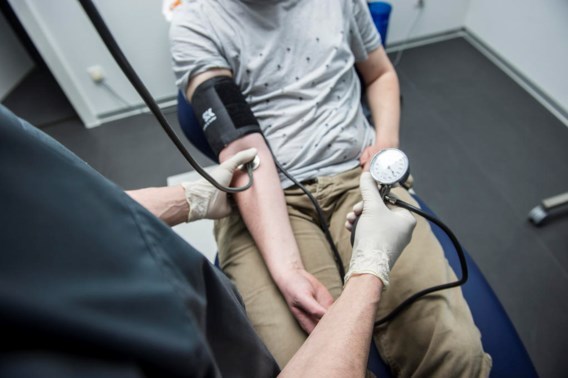General practitioners in Flanders diagnosed an increase in cases of depression since June last year and a higher number of patients with drug abuse problems, anxiety, obesity, and impotence since the start of the pandemic.
The increase in these cases was found based on the accumulation of data from Intego, a computer network of the University of Leuven (KU Leuven) that draws a picture of the overall health in Flanders every week based on the diagnoses of 400 of the same GPs, De Standaard reported on Monday.
Despite the number of obese patients dropping during the first lockdown, the figures in the region increased since June last year and soared by 200% in people aged over 40 in the last two months compared with the number of cases recorded in 2018-19.
House doctors believe this increase could be a result of people eating more comfort food to cope with the crisis, and exercising less during the winter.
The figures also showed a 30% increase in the cases of impotence in Flanders, which could be a result of the increased rate of obesity, Dirk Avonts of the medical team of the GP association Domus Medica told de Standaard.
“If people develop more obesity because of their changed behaviour, that has an impact on diabetes. That in turn has an impact on the blood vessels, which can manifest itself in erectile dysfunction. In short, those who eat worse and exercise less put their sex lives at risk,” he said.
Related News
- Relaxations in education and extracurricular activities start today
- All coronavirus indicators rise in Belgium
- Loneliness on the rise in Flanders
In general, anxiety also increased sharply during the coronavirus crisis in 2020, with GPs registering 72% more acute and 82% more chronic anxiety than in the previous two years, according to Intego supervisor Bert Vaes.
The public health institute Sciensano explained in a recent study that the increase in anxiety is a result of the number of infections, and depression is more a response to the restrictive measures, which explains why the figures of depression increased slowly from June onwards.
"You don't get depressed from acute problems. However, you do get depressed when you are repeatedly exposed to negative experiences," said Koen Lowet, delegate director of the Flemish Association of Clinical Psychologists.
Before June, there was still some hope that the pandemic would not last too long, however, soon after people started to realise the long-term impact of this virus, Avonts explained.
Following the first months of the pandemic, cases of anxiety dropped slightly, but looking at the figures from the year on average, there were still 33% more acute and 42% more chronic registrations compared to in 2019.
This problem specifically worsened for younger generations, as GPs registered more suicide attempts from June onwards, especially among young adults and from June onwards also among minors.
GPs also recorded about a quarter less alcohol abuse but noticed an increase in drug abuse as the pandemic dragged on, with young men being the biggest users.
Lauren Walker
The Brussels Times

